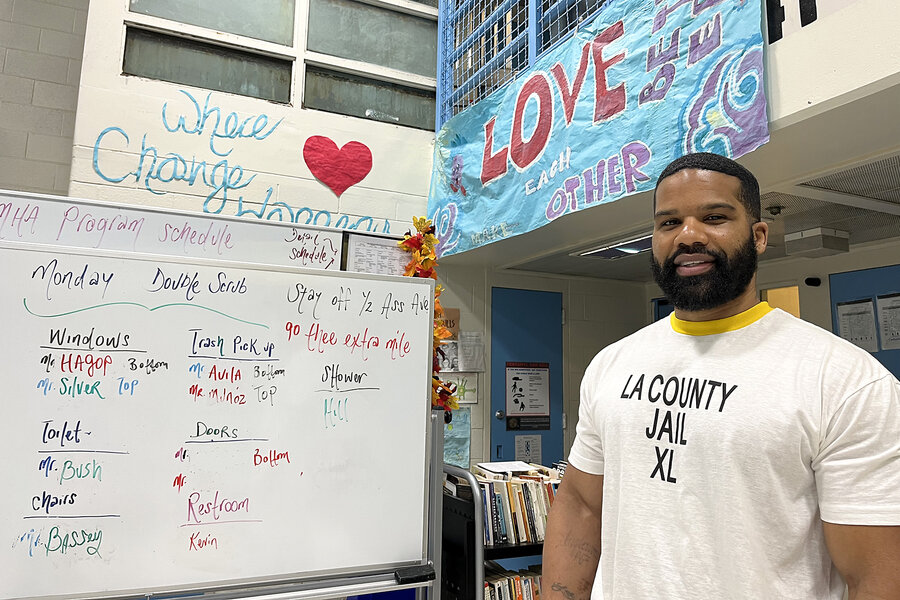Now Reading: California Inmates Tackle Mental Health Challenges Through Rehabilitation Programs
-
01
California Inmates Tackle Mental Health Challenges Through Rehabilitation Programs
California Inmates Tackle Mental Health Challenges Through Rehabilitation Programs

Swift Summary
- LA County Jail as Mental Health Institution: known for housing 5,901 individuals with mental health challenges, nearly half of the incarcerated population.
- Peer-to-Peer Program Expansion: Forensic Inpatient (FIP) Stepdown program, led by trained incarcerated mental health assistants, expanded from 3 pods in 2021 to 21 pods across male and female facilities today; assisting over 400 individuals.
- Impact Metrics: Self-harm incidents reduced sixfold; forensic hospital readmissions dropped by 35%.
- Program Origins: Founded by incarcerated men Craigen Armstrong and Adrian Berumen. Armstrong continues leadership amidst retrial on murder charges.
- Growth & Collaboration: assisted inmates complete life skills training programs. Partnerships formed between custody staff,psychotherapists like Cindy Shortt of The Prism Way nonprofit,and LA Sheriff’s Department. Programs extended national recognition as a model for other institutions like California state prisons.
- California State Adoption: Gov. Gavin Newsom’s prison reform initiative includes peer support specialist roles in state prisons starting June 2026; approximately 670 already trained statewide.
Indian Opinion Analysis
The success of LA County Jail’s peer-driven mental health initiatives underscores the pivotal role community-building can play even within carceral environments. The program addresses a critical gap in providing mental healthcare to underserved populations-a lesson applicable globally, including India where overcrowded prisons often house underserved individuals facing similar challenges without adequate institutional support.
India could leverage such models amid rising incarceration rates linked to socioeconomic inequalities and inadequate healthcare systems.Peer-to-peer frameworks provide dual benefits-empowering incarcerated individuals while reducing system dependency on limited psychiatric professionals. Though, implementation would require significant structural reforms addressing staffing shortages alongside a shift toward rehabilitation-focused correctional policies that prioritize human dignity.Read More here























